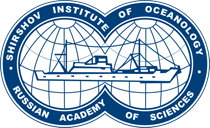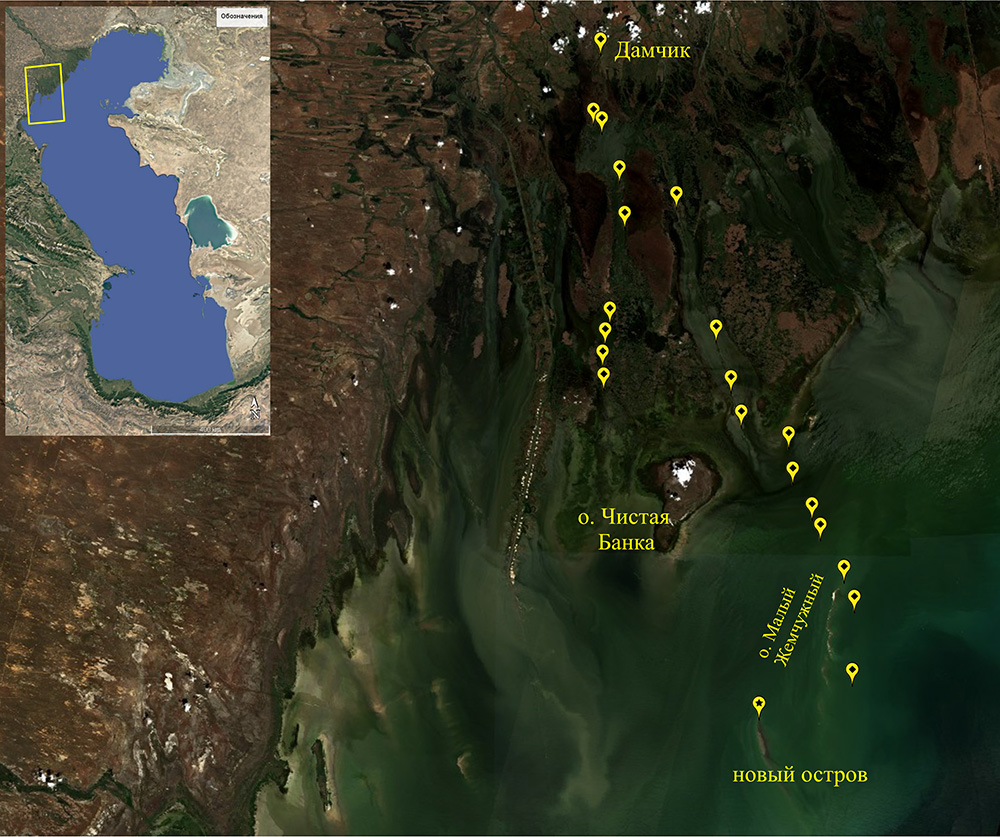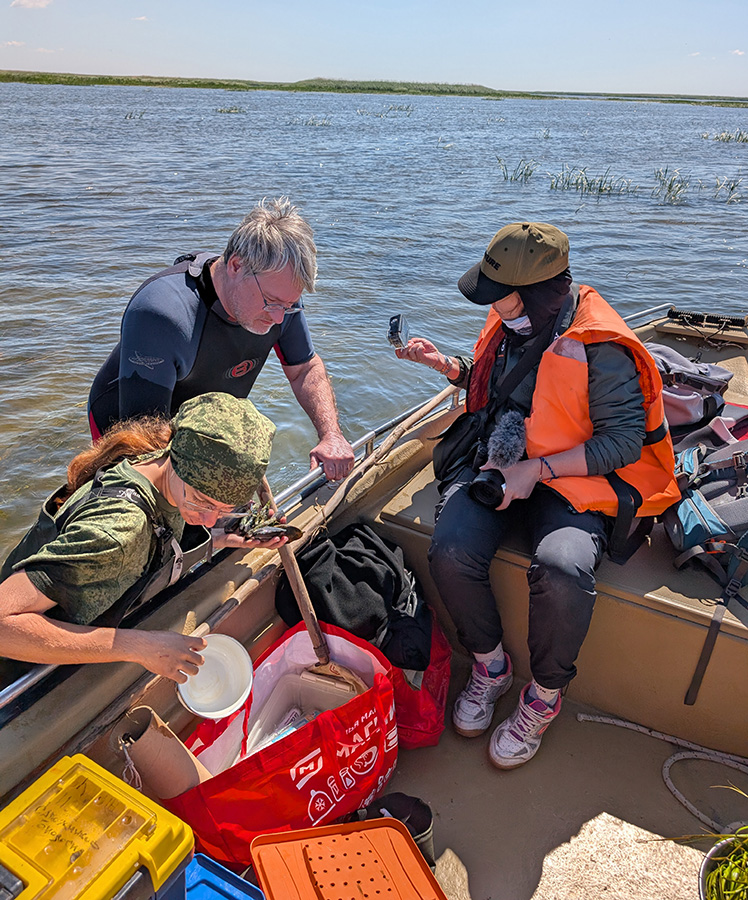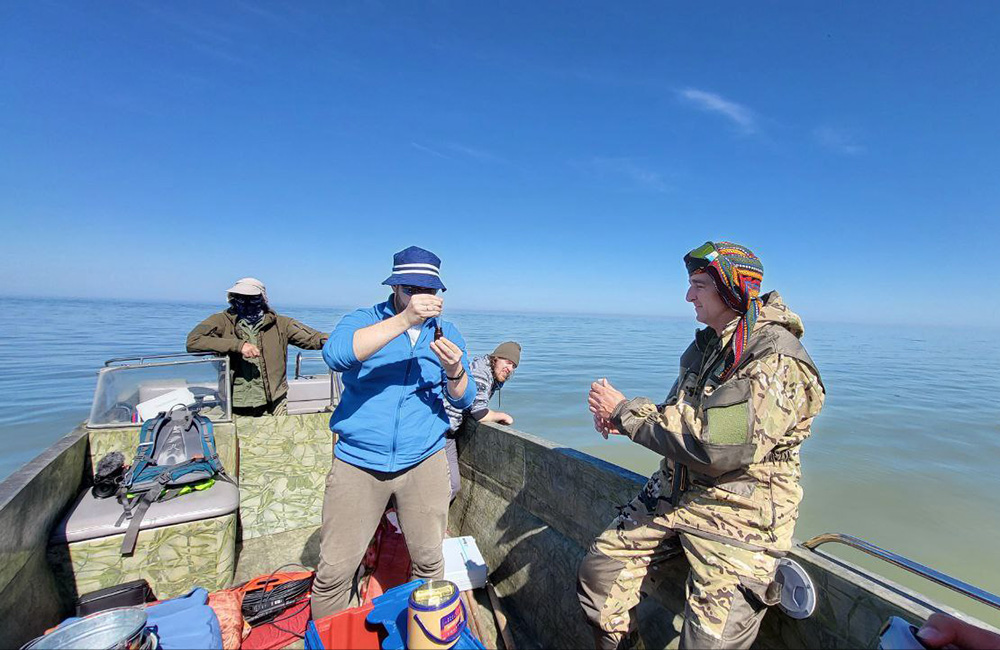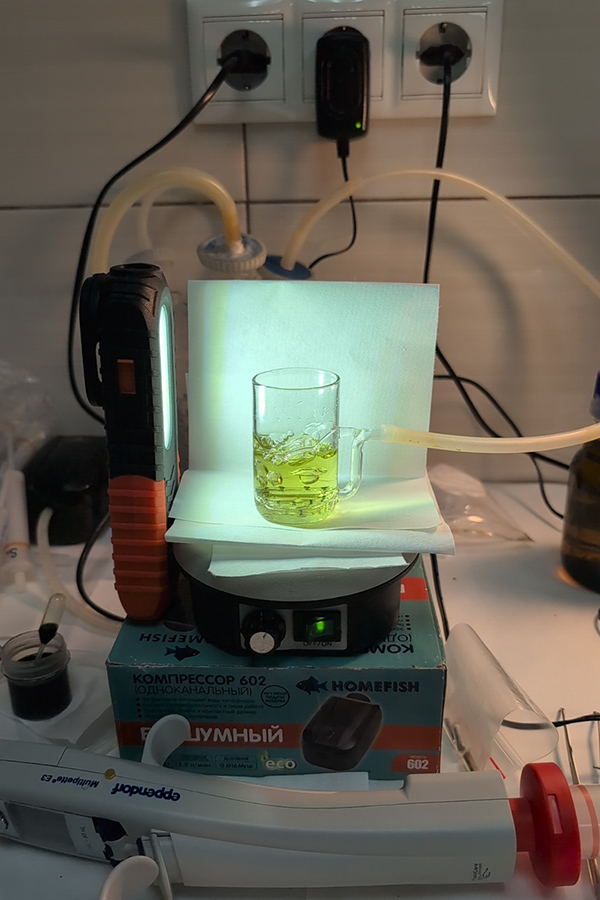Scientists from the Laboratory of Bio-Hydrochemistry of Shirshov Institute of Oceanology of the Russian Academy of Sciences, together with employees of the Astrakhan State Nature Reserve, have completed an expedition to the Volga River Delta and the Northern Caspian Sea, conducted to study the impact of a decrease in the Volga River runoff and a drop in the Caspian Sea level on the state of the local ecosystem. This is the fifth expedition of Shirshov Institute of Oceanology of the Russian Academy of Sciences since 2021, aimed at studying the consequences of the shallowing of the Caspian Sea on the ecosystem of the Volga Delta and the adjacent shelf of the sea.
Research area
The main objective was to study changes in temperature, electrical conductivity, turbidity, nutrient content, dissolved oxygen, carbonate system parameters, chlorophyll-a, organic carbon and phytoplankton species composition in various parts of the delta and coastal waters. Eight stations were set up with measurements and sampling in the delta itself and eleven monitoring points along the Gandurinsky fish passage channel of the delta and further into the open sea at a distance of about 50 km from the delta.
Sampling
For the first time since 2021, scientists have managed to detect a mixing zone of fresh and sea waters in the immediate vicinity of Maly Zhemchuzhny Island. Sampling sites for identifying the mixing zone were planned using the Sentinel-2 satellite image, which allows for highly accurate detection of differences in water color. The results show that the presence of a mixing zone in the immediate vicinity of the delta edge is associated with extremely low Volga runoff during the spring flood of the current year.
Fixation of samples
"Analysis of the collected samples demonstrated high levels of dissolved oxygen concentration and pH values in the studied water areas, indicating high productivity of the aquatic organisms' habitat. However, low water in the river led to a shift in the natural reproduction cycle of many commercial fish species, including the Caspian Sea endemic roach.
Titration for determination of total alkalinity
“For a correct assessment of the long-term consequences of low water levels on the region’s biological diversity, further research will be required,” noted the head of the Laboratory of Biohydrochemistry, PhD in Geographical Sciences Alexander Polukhin.
Based on the results of this and previous scientific expeditions, justifications will be prepared for the creation of a network of marine protected natural waters in the Northern Caspian Sea.
The expedition took place within the framework of the Russian Science Foundation project No. 24-44-20006 “Spatial planning and satellite monitoring of marine protected natural waters of the Caspian Sea” (headed by Doctor of Physical and Mathematical Sciences Kostyanoy A.G., IO RAS).
